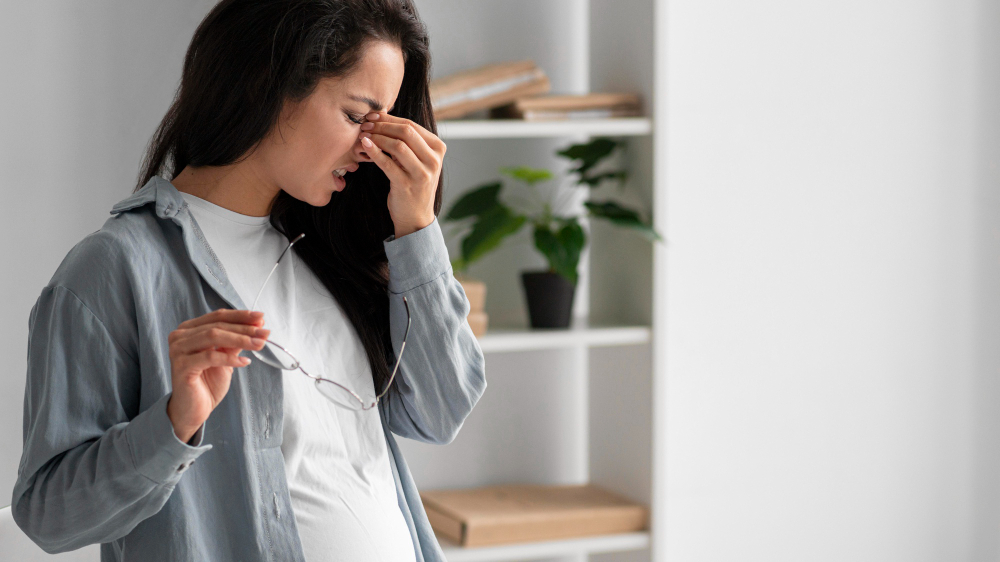Using triptans for migraine during pregnancy does not increase risk of neurodevelopmental disorders in offspring
Prenatal exposure to triptans—alone or in combination with other migraine medications—does not increase the risk of developmental disorders in children up to age 14, according to research published in Neurology. The study is based on data from more than 26,000 pregnancies in a national registry in Norway and includes autism spectrum disorders, language disorders, and attention deficit hyperactivity disorder, among other diagnoses.

250521 migraña embarazo robert EN
Robert Belvís
Clinical Head of the Headache and Neuralgia Unit at the Neurology Department of the Hospital de la Santa Creu i Sant Pau in Barcelona
Triptans are contraindicated during pregnancy in their European medicine leaflet because pregnant women with migraine were not included in their clinical trials. However, it is not uncommon for women taking them to become pregnant and continue taking them in early pregnancy, and migraine can reportedly worsen in 8% of pregnant women.
A previous independent Norwegian registry of pregnant women with migraine treated with triptans and two post-marketing pharmaceutical industry registries had demonstrated their safety in newborns and with respect to mode of delivery. However, there was no large study on the possibility of long-term neurodevelopmental disease and this study confirms safety again in newborns, but also gives us unique data on neurodevelopmental safety in childhood and adolescence.
It should be noted that the developmental disorders that have been ruled out are clinical disorders, i.e. diagnosed by someone. A psychological study has not been carried out to detect less serious or subclinical disorders.
This work reassures patients and physicians about the longer-term safety of triptans, but does not change their contraindication during pregnancy.
Conflict of interest: ‘I have given presentations, conducted clinical trials and participated in advisory boards for Novartis, ABBVIE, TEVA, Almirall, Lundbeck, Dr. Reddy, Abbott, Exeltis, Lilly, Organon, Pfizer, Noema and Boston.’
250521 embarazo migraña patricia EN
Patricia Pozo Rosich
Neurologist, expert in migraine, head of section of the Neurology Service of the Vall d'Hebron Hospital in Barcelona
This Norwegian population-based study provides a large cohort and a long subsequent follow-up. Overall, we could say, based on this study, that taking triptans during pregnancy seems safe. I think it is always good to have more evidence.
Conflict of interest: in the last three years, Dr. Pozo-Rosich reports receiving consulting and medical education fees from AbbVie, Dr. Reddy's, Eli Lilly, Lundbeck, Medscape, Novartis, Organon, Pfizer, and Teva. Her research group has received research grants from AbbVie, Novartis, Teva, AGAUR, EraNet Neuron, and the Carlos III Research Institute. In addition, her research group has conducted clinical trials with AbbVie, Amgen, Eli Lilly, Lundbeck, Pfizer, and Teva. She is an associate editor of Cephalalgia and Neurology. She is the honorary secretary of the International Headache Society.
Margherita Camanni et al.
- Research article
- Peer reviewed
- Non-randomized
- Observational study
- People



